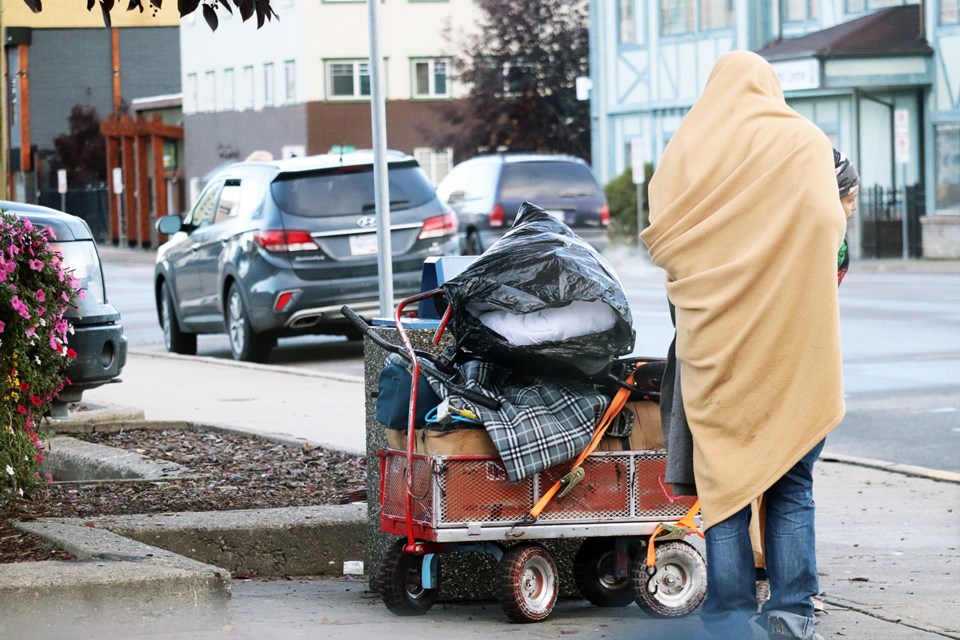A first-of-its kind report on homelessness has revealed that the Fraser-Fort George region, which includes Prince George, has the highest proportion of homelessness on a per capita basis based on population.
The data comes from Phase 1 of the province’s Integrated Data Project which provides an estimate of the number of people who have experienced homelessness across the province at some point in the year.
The report found that about 23,000 people in B.C. experienced homelessness for some period of time in 2019 and on average around 9,300 individuals experienced homelessness each month and 48 per cent of individuals were homeless for six months or more.
The report uses anonymized provincial data from 2019 to create a reliable picture of people experiencing homelessness, including the community where they lived and whether their homelessness was short-term or chronic.
This estimate is based on data from several provincial datasets and is representative of the whole year, which is different than a Point-in-Time Homeless count – which is a 24-hour snapshot.
"If our plan to prevent and address homelessness across the province is to be successful, we'll need information about where the work needs to be done to get people inside and prevent people from becoming homeless in the first place," said David Eby, Attorney General and Minister Responsible for Housing in a news release.
"The information we've gathered since doing a physical provincial homeless count for the first time in 2018 has been very useful in identifying trends and unique demographic information; however, this new anonymized data collected from government systems helps us better figure out the profiles of those who are chronically homeless and what services and supports these folks need to come inside. We'll be able to transition from reacting to a particular housing crisis, to being able to prevent chronic homelessness in the first place. That's a big deal, and this information makes it possible."
The data will be collected and reported each year to provide information on trends and ensure solutions to homelessness can be targeted where they will be most effective.
"We acknowledge that people experiencing homelessness have been systemically excluded from decision-making, so it's critically important that we are opening a dialogue with folks to get a better understanding of what their individual needs are," said Shayne Ramsay, CEO, BC Housing.
"The goal is to use this information to help inform better policies and decisions that ultimately benefit people experiencing homelessness in our province."
Following the release of this report, the province has also announced new funding in its 2022 budget to address homelessness in B.C.
The government of B.C. said it is investing $633 million in new initiatives aimed at helping at preventing and reducing chronic homelessness in the province.
These investments include:
- $35 million over three years to support young people in government care until the age of 27.
- $600-per-month rent supplements with integrated health and social supports to help people with low incomes access housing in the private market over the next three years;
- $164 million over three years to expand the government’s complex-care housing program to help the most vulnerable people who need a level of support that goes beyond what the current model of supportive housing can provide;
- and $264 million over three years for a permanent housing plan to ensure the approximately 3,000 people who were temporarily housed during the COVID-19 pandemic do not return to homelessness
The province says implementation of these initiatives will begin this year.



